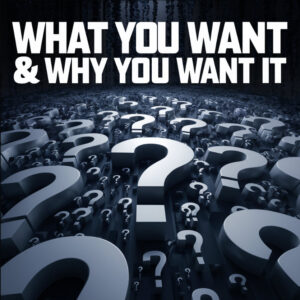A long time ago, I heard this quote that really messed with my brain. Though I cannot find the source of this exact quote, there are many similar Buddhist tenets. It has really helped me get what I want in my life, though!
“Be committed, but not attached.”
Commitment
In my coach training, and in my personal philosophy, I believe in the concept of “commitment.” We define commitment as something that you know about by the actions you take. Meaning, I can say I am committed to my health, but if I eat bad food and I don’t exercise, I am likely more committed to the idea of my health.
It’s important to note that one can be committed to either an outcome or a process (or both). Being clear on which one you are committing to is a vital distinction. For example, if I commit to lose 5 pounds by Dec. 1, that is a clear outcome commitment. If I do not achieve that outcome, but I say, “hey I exercised 4 days this week,” that is great, but what this shows is that I was committed to the process of exercising, and not the actual outcome of weight loss.
The magic of being committed to an outcome is that it releases you from a particular process. If the process you have chosen (exercise, for example) is not getting you the result you want, and you are in fact committed to the result, you will keep trying different ways to get there. Being committed to a process has its own magic as well, especially if what you are aiming at is establishing healthy habits, but don’t want to be tied to a specific outcome. Commitment to either a process or an outcome requires purposefulness, fortitude, and tenacity. Committing to an outcome however, adds an element of risk and often requires courage, flexibility, and creativity that process-driven commitment does not require.
It can be pretty scary to commit to a result when you are not sure if you will get it. I do believe commitment to achieving a result is the secret to getting what you want though. It’s scary because after you say, “Yes! I will lose that weight by that date” or “have that many clients or that much money” and commit to it and do all the things, you may or may not get it. Here is where the quote and the idea of attachment comes in.
Committed but not Attached
What if I declare, loud and proud, I will have 20 people in this coach training that begins on July 27, 2024? I will work at it if I stay committed. I will try. I will come up with new ways. I will never give up. And on July 27, I may get it. And I may not. So what if I do not get my result after all of that? The conundrum is that on the one hand, declaring unequivocal commitment to a particular result more likely means you will get it. On the other, many people feel upset with themselves and may tell themselves they have “failed” or are a “failure” if they commit and don’t get it. Many people would prefer to “try” or commit to a process (“I will post on social media weekly,” for example) so that if they do not get the result, at least they don’t “feel bad.”
Attachment
“Attachment” is feeling bad about yourself and your situation when you don’t get what you want and you have committed to it and put all your effort into it. So we just decide not to totally commit and go all in, so we can avoid that feeling.
Without attachment, though, you are much more likely to continue to declare and commit and ultimately get what you say you want. And if you don’t get it, you learn and you try again!
Easier said than done? In looking at this quote, I realized my belief that attachment (feeling bad when I “failed”) somehow motivates me. But do I want to be motivated in this way? Never has being mean to myself served me well. So I am learning. I am practicing. Go all in – declare, commit! Do whatever it takes. And in the end, be nice to myself, learn from my results, do a debrief, and then start again!







